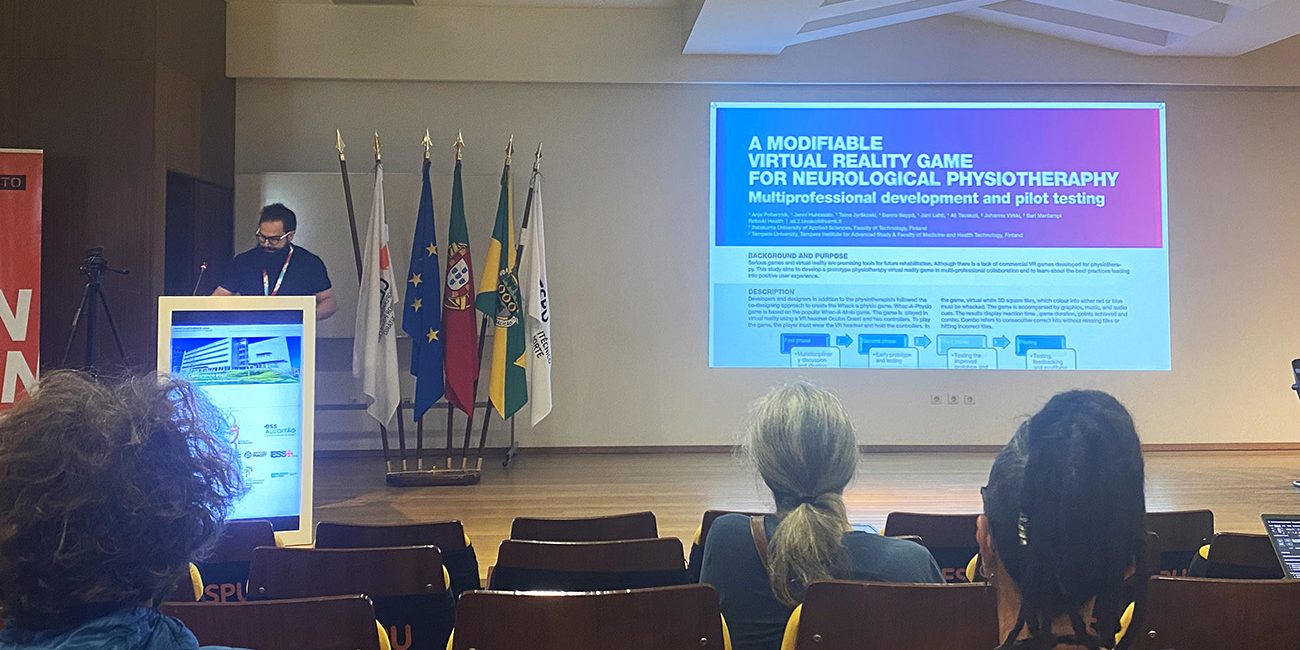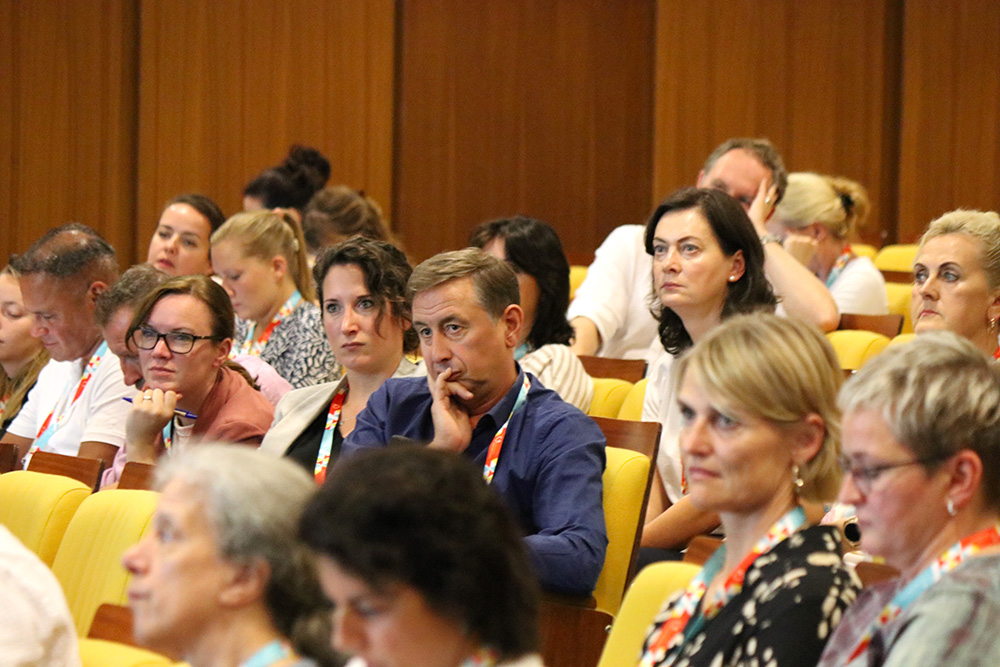The ENPHE (European Network of Physiotherapy in Higher Education) conference gathered experts and educators of physiotherapy from all around Europe. On 2022 15th-17th of September, ENPHE conference was organized in CESPU, Vila Nova de Famalicão, Portugal. Project Researcher and physiotherapy student Ali Tavakoli was there on behalf of Virtual Rehabilitation Network project to present a Virtual Reality game developed in the team.

The main event consisted of keynotes and workshops. Keynotes emphasized the importance of teaching physiotherapy for the benefit of patients rather than teaching a wide range of information. It was also discussed that there is a gap between what is taught and what students learn in real life. The workshops focused more on the importance of direct access to physiotherapy. The limitations, current legislation and how students should be educated for that. In another workshop participants got familiar with the gaps in educating students about pain management and modalities.
From RoboAI Health our topic ‘’A modifiable virtual reality game for neurological physiotherapy – Multi-professional development and pilot testing’’[1], was selected for presentation as one of the top 10 papers. Virtual Rehabilitation Network project has attracted lots of interest among a large variety of organizations and universities throughout the EU.

Feedback and discussion
During discussions, some insight was gained into VR rehabilitation. Some believe technology should be used so as to benefit us rather than control us. A suggestion was also made that new technologies should be embraced because they are beneficial, not just because they are new. Further, it was discussed that empathy and significance must be carefully considered when considering VR as a rehabilitation technique.
The feasibility of VR must be demonstrated in certain situations and conditions to offer specialists and clients a wider range of options. Thus, VR should be used to provide the most effective possible service to patients in order to meet their individual needs and provide more tailored treatment. Regardless of how appealing VR might be to some people, students should learn about its limitations and capabilities before applying it to real-world situations. Once they have done that, they can decide whether or not to use it on their patients.
Further research ideas
Despite the limited educational and learning opportunities for virtual rehabilitation, it was encouraging to see how much interest there was in this topic. This means that teachers and institutes specializing in physiotherapy will have more opportunities and responsibility to raise awareness about how cutting-edge technologies like VR can be applied to rehabilitation. One idea would be a project focusing solely on "VR rehabilitation education for physiotherapy students: prospects and challenges". Additionally, rehabilitation researchers were interested in finding more information about VR rehabilitation to check its validity. Therefore, further clinical research on VR in rehabilitation might be considered.
For more info:
Project Researcher
Ali Tavakoli
ali.2.tavakoli@samk.fi
[1] Anja Poberznik, Jenni Huhtasalo, Taina Jyräkoski, Sanna Seppä, Jani Lahti, Ali Tavakoli, Johanna Virkki and Sari Merilampi, 2022